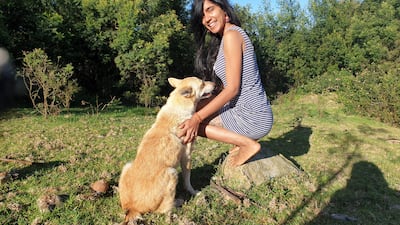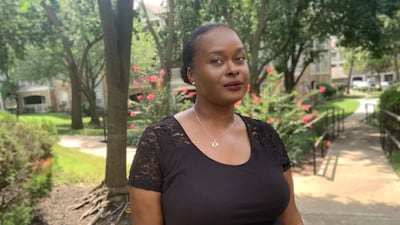Floris Estourgie’s legs hurt for several years, a problem that doctors were unable to cure. After some research, he tried a 21-day water fast in 2017.
“I felt like a different person after the fast, with better sleep and digestion, a calmer state of mind, less irritability and more confidence. I’ve been fasting regularly ever since,” says Estourgie, 23, a foreign exchange trader in Mexico. He does many water and dry fasts, lasting between one and three weeks through the year, and attributes the considerably reduced pain in his legs to the practice.
Anecdotal pros
Intermittent fasting – eating for shorter durations over the course of a single day – has been popular for some years now. But many, like Estourgie, routinely fast for extended periods, ranging from 24 hours to several weeks.
Speaking strictly anecdotally, as there is no conclusive scientific research to back this up, fasting is reported to reduce inflammation, improve insulin sensitivity and cellular repair, aid weight loss and manage chronic diseases.
Kartika Dubey tried a three-day water fast in 2019 after a painful abscess recurred despite medication.
“The problem was gone after the fast,” she claims. “Since then, I fast regularly, doing water, dry and juice fasts to heal, maintain and upgrade my health,” says Dubey, 30, a life coach and dance movement therapist from Palani Hills, India.
Alexa Jones turned to fasting after she became ill seven years ago and doctors could not pinpoint the exact problem.
“I had a weak and sore liver, hard painful masses in my abdomen and frequent headaches,” says Jones, 35, a technology founder from Tulsa, US. Now she does a monthly water or dry fast for three to five days. “I have since healed the masses in my stomach, my liver is stronger, I'm not crippled any more and I don't suffer from chronic headaches,” Jones tells The National.
president, Nutritional Research Foundation
Initially motivated by weight loss, Manish Bhatt began to fast daily for at least 16 hours, extending it to 36 hours at the weekend to reset his discipline. He reports feeling more energetic and alert, and has lost 18 kilograms of excess weight over the past two years.
“But the most surprising results are emotional and spiritual. I feel more inclined towards self-inquiry, kindness and meditation,” says Bhatt, 47, an advertising agency owner from Gurgaon, India. Many echo this sentiment, attributing clarity of thought, mindfulness and mental discipline to their fasting practice.
Luke Coutinho, a holistic lifestyle coach − integrative and lifestyle medicine, from Mumbai, India, believes prolonged fasting is beneficial for the body’s healing mechanisms. “However, it is not easy with the kinds of jobs and responsibilities most of us have,” he says. “The most doable and natural way to fast is in a 12-hour circadian rhythm. One can do a 24-hour fast once in a while.”
Medical cons

While advocates are persuaded by the benefits they have experienced upon not eating for extended periods of time, many medical professionals remain unconvinced, given the limited research on prolonged fasting.
“Healing is accelerated when not eating, but that occurs when we sleep and during short fasts just as effectively,” says physician Joel Fuhrman, president of the Nutritional Research Foundation and a New York Times bestselling author who lives in Flemington, US.
“In longer fasts, the body runs out of glutathione and other nutrients needed to remove toxins. My views are consistent with the overwhelming amount of scientific research that only moderate caloric restriction, so you don’t get too thin, and intermittent fasting, which enables sleep without digestive activity, [and may be] lifespan-promoting.”
holistic lifestyle coach
Fuhrman does not recommend a medically unsupervised water fast that lasts any longer than five days, after which the risks of low potassium and dehydration are heightened, or a vegetable juice fast exceeding 10 days.
He also labels dry-fasting as “dangerous”, pointing out the risks of kidney damage.
People with health issues should always consult their doctor before introducing any dietary change.
Preparation is key
“It’s important to be well-hydrated by eating a lot of fresh fruits and drinking juices and water for long periods of time before a dry fast,” says Dubey.
Coutinho agrees, claiming that energy otherwise used for the digestive process is focused completely on healing. “A boosted immune system, reduced inflammation and more can be achieved through fasting, provided it’s done the right way.”
Other risks of prolonged fasting include anaemia, a weakened immune system, liver and kidney problems, and mineral deficiencies. Fuhrman also says: “An overwhelming risk of fasting is fainting and injuring yourself. Be alert to the possibility of becoming light-headed at any time and immediately get down to the floor to prevent a fall.”

However, supporters reiterate that all these risks are brought on by insufficient or incorrect preparation. “In the building phase, make sure you eat well. Don’t diet, else you will only cripple your metabolism. Get your macros and micros, vitamins and minerals,” says Coutinho.
Breaking a fast gradually after a prolonged period is equally important, as immediately eating heavy food or consuming large quantities can be harmful.
Even its advocates concede, however, that prolonged fasting can be uncomfortable. Estourgie lost a fingernail and his lymph node swelled painfully during a 26-day water fast. He writes this off as part of the body’s purging process to release toxins, and says eventually his nail grew back completely and the swelling subsided without any intervention.
“Fasting can be very rough on the body,” admits Jones. “The results will be unsustainable without a change in mindset about nutrition. I think it's hard if weight loss is your only goal.”
Both parties agree that doing your research and consulting a health professional is crucial. “I believe fasting is important to maintain great health, but people's bodies and journeys are complex and different,” says Dubey. “Health shouldn't be messed around with, take it slow and consult a professional along the way.”





